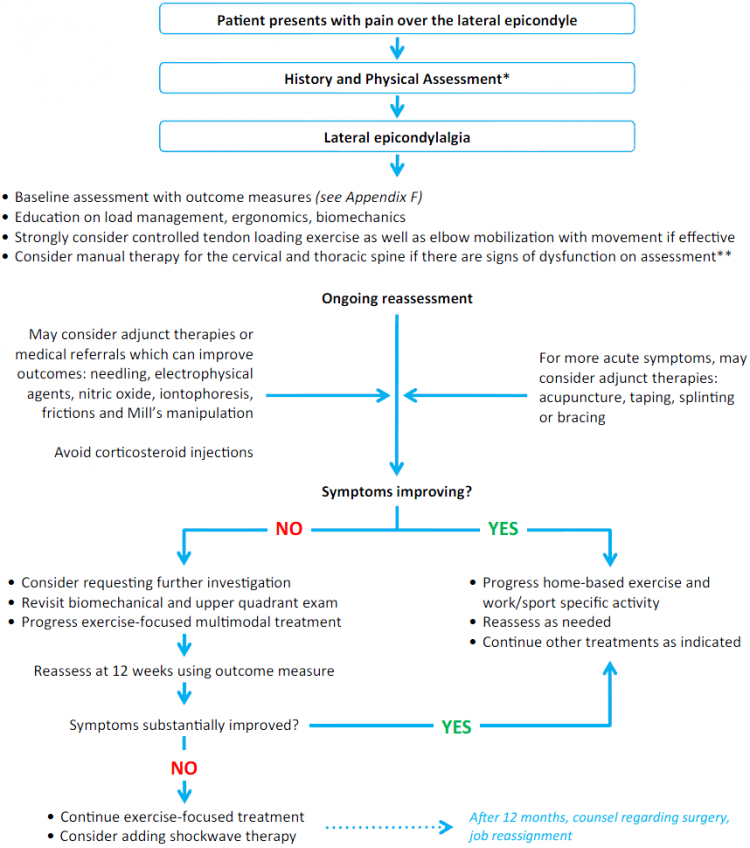Lateral Epicondyle Tendinopathy Toolkit: Treatment Algorithm: Difference between revisions
Evan Thomas (talk | contribs) No edit summary |
Evan Thomas (talk | contribs) No edit summary |
||
| Line 71: | Line 71: | ||
<br> | <br> | ||
''* Differential diagnoses include: nerve entrapment, neuropathic pain, chronic pain syndrome, referred pain (cervical, neuro-myofascial), synovitis of radiohumeral joint, radiohumeral bursitis, osteochondritis dissecans, generalized inflammatory disorder'' | |||
''* Evaluate response to manual therapy and incorporate into treatment if patient experiences pain-relief'' | ''* Evaluate response to manual therapy and incorporate into treatment if patient experiences pain-relief'' | ||
Revision as of 22:33, 28 July 2013
* Differential diagnoses include: nerve entrapment, neuropathic pain, chronic pain syndrome, referred pain (cervical, neuro-myofascial), synovitis of radiohumeral joint, radiohumeral bursitis, osteochondritis dissecans, generalized inflammatory disorder
* Evaluate response to manual therapy and incorporate into treatment if patient experiences pain-relief
- Click to return to the Contents Page
- Click to return to the Summary of the Evidence
- Click to continue to Appendix A: Details of the Articles
- Click to skip to Appendix B: Manual Therapy
- Click to skip to Appendix C: Details of Exercise Prescription
- Click to skip to Appendix D: LASER Dosage Calculation
- Click to skip to Appendix E: Braces, Splints, and Taping
- Click to skip to Appendix F: Outcome Measures
- Click to skip to Appendix G: Medical and Surgical Interventions
Download Lateral Epicondyle Tendinopathy Toolkit: Treatment Algorithm
[edit | edit source]
Acknowledgements[edit | edit source]
Developed by the BC Physical Therapy Tendinopathy Task Force: Dr. Joseph Anthony, Dr. Angela Fearon, Diana Hughes, Carol Kennedy, Dr. Alex Scott, Michael Yates, & Alison Hoens.
A Physical Therapy Knowledge Broker project supported by: UBC Department of Physical Therapy, Physiotherapy Association of BC, Vancouver Coastal Research Institute and Providence Healthcare Research Institute.
June 2013







